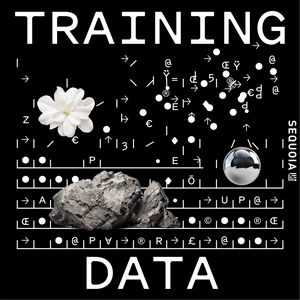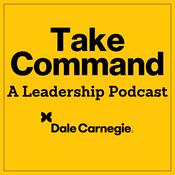81 episódios
Building the GitHub for RL Environments: Prime Intellect's Will Brown & Johannes Hagemann
10/2/2026 | 44minWill Brown and Johannes Hagemann of Prime Intellect discuss the shift from static prompting to "environment-based" AI development, and their Environments Hub, a platform designed to democratize frontier-level training.
The conversation highlights a major shift: AI progress is moving toward Recursive Language Models that manage their own context and agentic RL that scales through trial and error. Will and Johannes describe their vision for the future in which every company will become an AI research lab. By leveraging institutional knowledge as training data, businesses can build models with decades of experience that far outperform generic, off-the-shelf systems.Hosted by Sonya Huang, Sequoia Capital- Jamie Cuffe is solving one of AI's hardest problems: getting conservative, regulated industries to trust autonomous agents with mission-critical work. At Pace, he's building AI that replaces traditional BPOs in insurance, handling everything from email triage to claims processing with 50-75% cost savings. Drawing on his experience at Retool, Jamie emphasizes the importance of "closing the distance" with customers through forward-deployed engineering and being "the rock" that clients can rely on. He shares how focusing on top-tier insurance carriers and maintaining exceptionally high standards is enabling Pace to capture a meaningful share of the $400 billion BPO market while building a durable business model - at AI-native velocity.
Hosted by Lauren Reeder and Pat Grady, Sequoia Capital - Zach Lloyd built Warp to modernize the terminal for professional developers, but the rise of coding agents transformed his company's trajectory. He discusses the convergence of IDEs and terminals into new workbenches built for prompting and agent orchestration, and why he thinks "coding will be solved" within a few years, making human expression of intent the ultimate bottleneck. Zach explains how Warp competes against subsidized tools from Anthropic and OpenAI, and why the terminal's time-based, text-oriented format makes it perfect for managing swarms of cloud agents.
Hosted by Sonya Huang, Sequoia Capital - Harrison Chase, cofounder of LangChain and pioneer of AI agent frameworks, discusses the emergence of long-horizon agents that can work autonomously for extended periods.
Harrison breaks down the evolution from early scaffolding approaches to today's harness-based architectures, explaining why context engineering - not just better models - has become fundamental to agent development.
He shares insights on why coding agents are leading the way, the role of file systems in agent workflows, and how building agents differs from traditional software development - from the importance of traces as the new source of truth to memory systems that enable agents to improve themselves over time.
Hosted by Sonya Huang and Pat Grady How Ricursive Intelligence’s Founders are Using AI to Shape The Future of Chip Design
14/1/2026 | 36minAnna Goldie and Azalia Mirhoseini created AlphaChip at Google, using AI to design four generations of TPUs and reducing chip floor planning from months to hours. They explain how chip design has become the critical bottleneck for AI progress -- a process that typically takes years and costs hundreds of millions of dollars. Now at Ricursive Intelligence, they're enabling an evolution of the industry from “fabless” to "designless," where any company can create custom silicon with Ricursive Intelligence. Their vision: recursive self-improvement where AI designs more powerful chips, and faster, accelerating AI itself.
Hosted by Stephanie Zhan and Sonya Huang
Mais podcasts de Negócios
Podcasts em tendência em Negócios
Sobre Training Data
Join us as we train our neural nets on the theme of the century: AI. Sonya Huang, Pat Grady and more Sequoia Capital partners host conversations with leading AI builders and researchers to ask critical questions and develop a deeper understanding of the evolving technologies—and their implications for technology, business and society.
The content of this podcast does not constitute investment advice, an offer to provide investment advisory services, or an offer to sell or solicitation of an offer to buy an interest in any investment fund.
Site de podcastOuça Training Data, Economia e muitos outros podcasts de todo o mundo com o aplicativo o radio.net

Obtenha o aplicativo gratuito radio.net
- Guardar rádios e podcasts favoritos
- Transmissão via Wi-Fi ou Bluetooth
- Carplay & Android Audo compatìvel
- E ainda mais funções
Obtenha o aplicativo gratuito radio.net
- Guardar rádios e podcasts favoritos
- Transmissão via Wi-Fi ou Bluetooth
- Carplay & Android Audo compatìvel
- E ainda mais funções


Training Data
Leia o código,
baixe o aplicativo,
ouça.
baixe o aplicativo,
ouça.










































